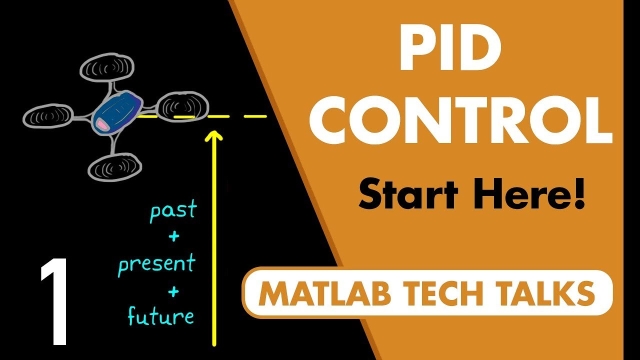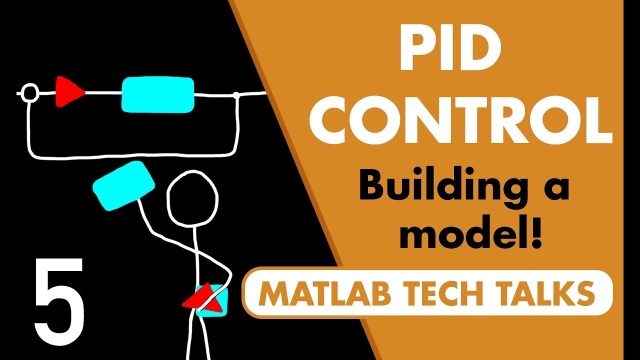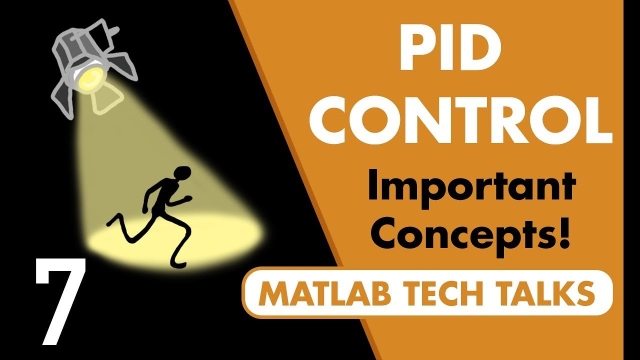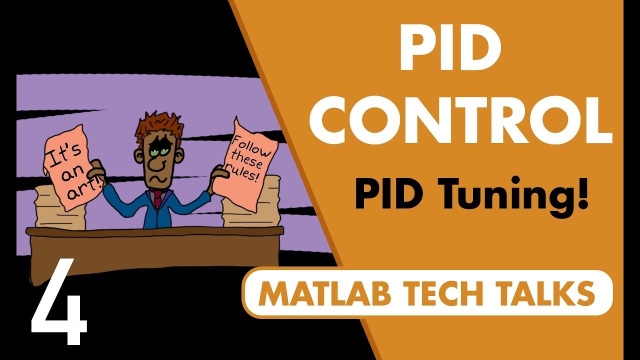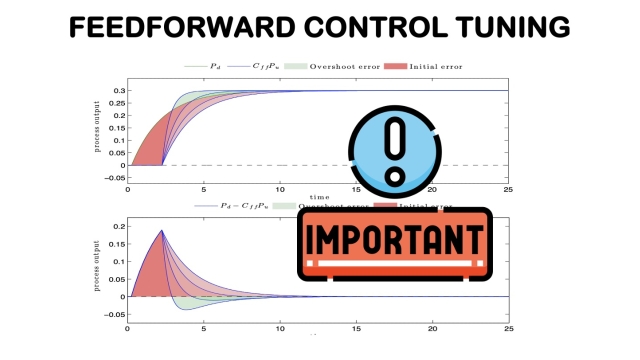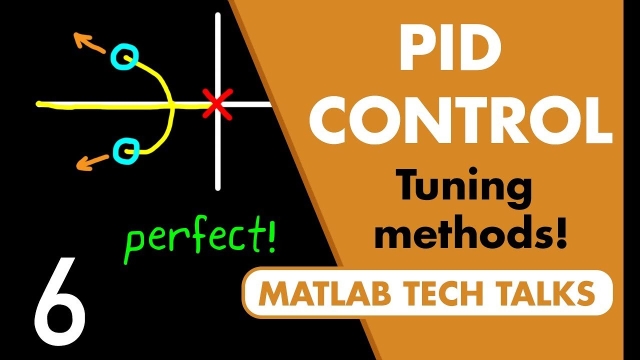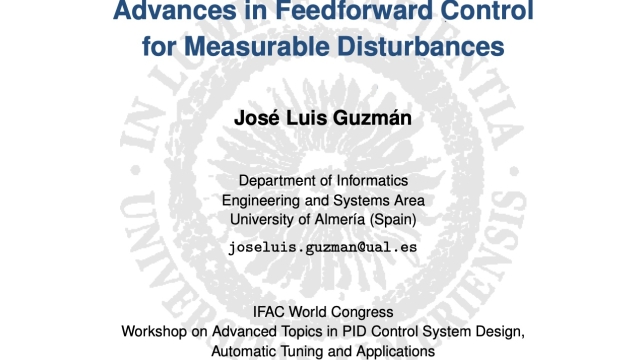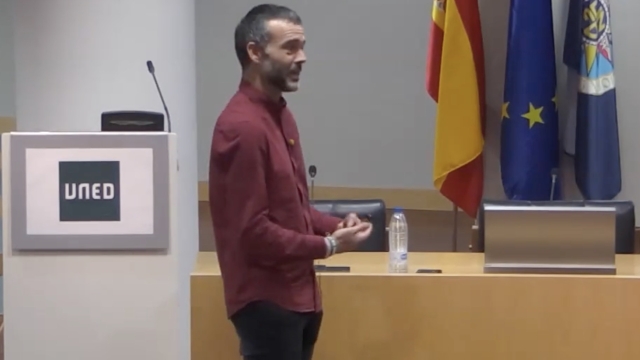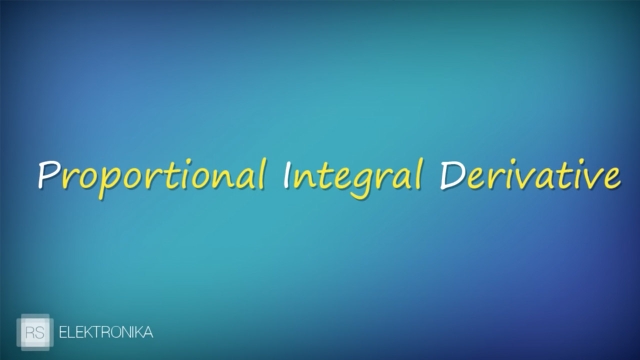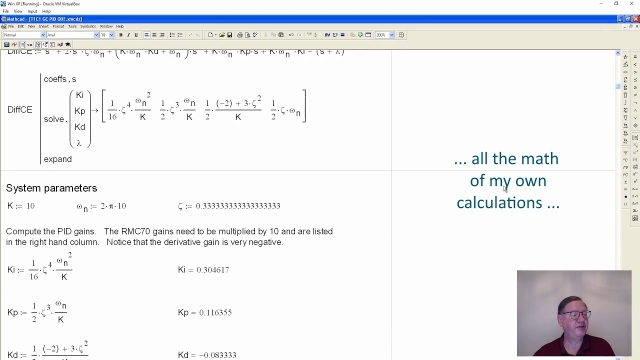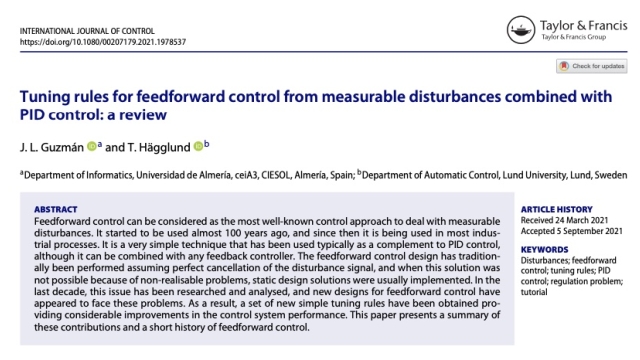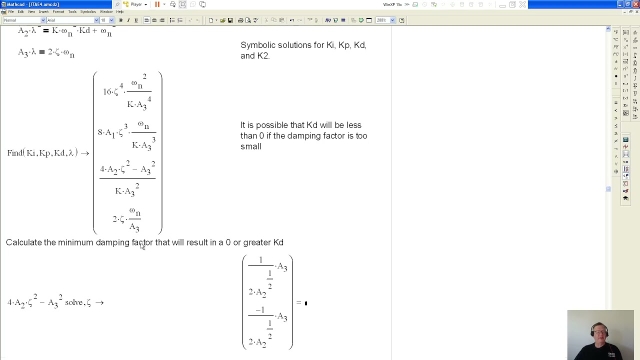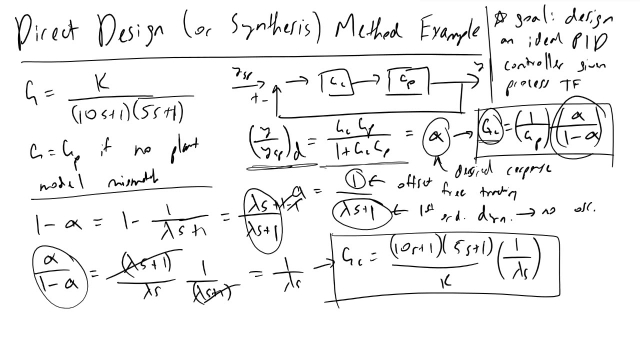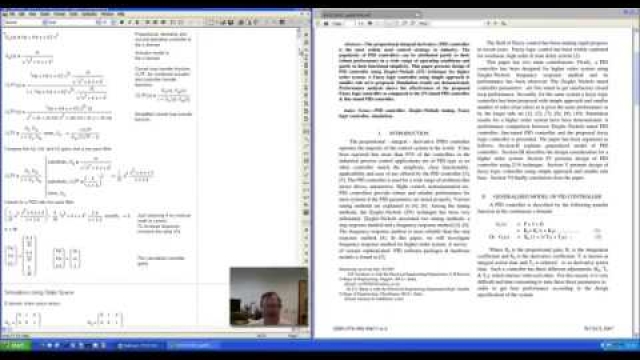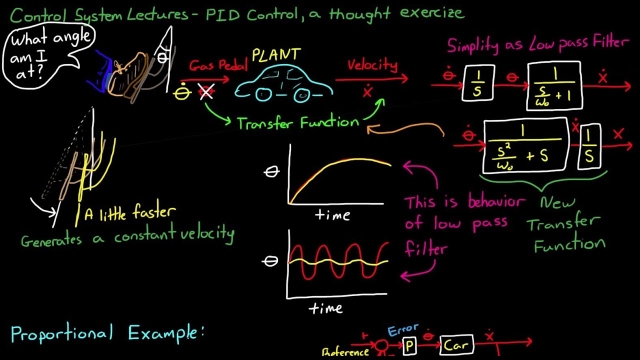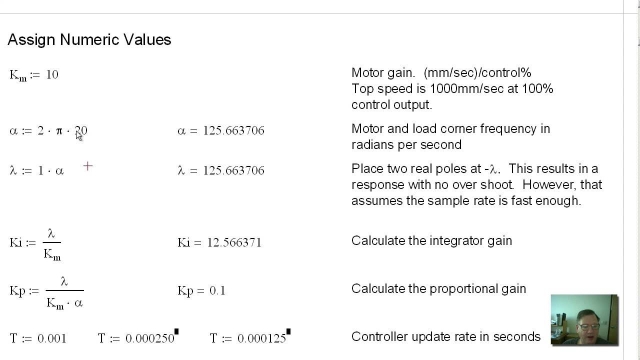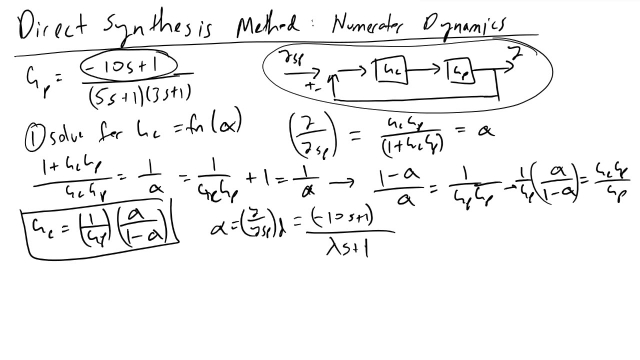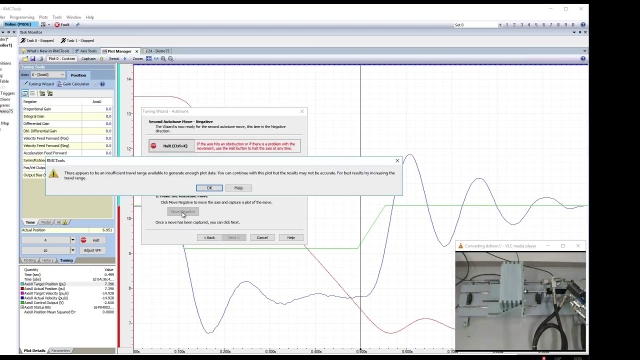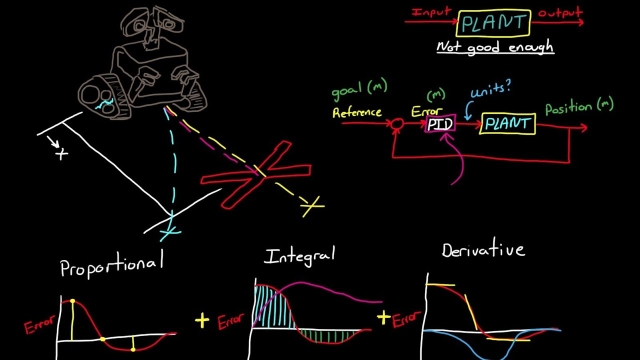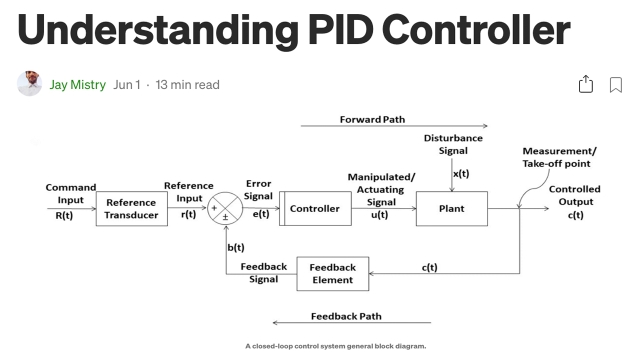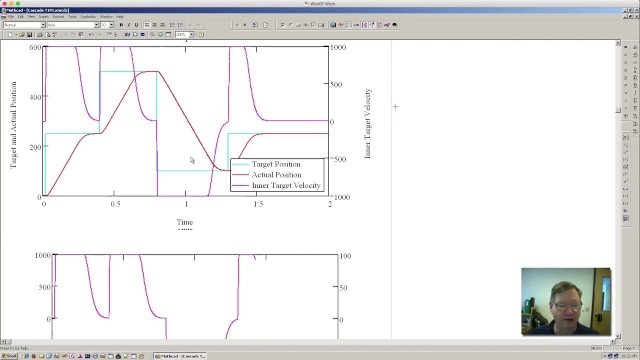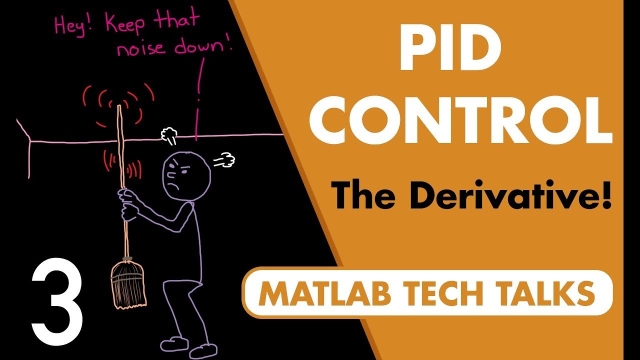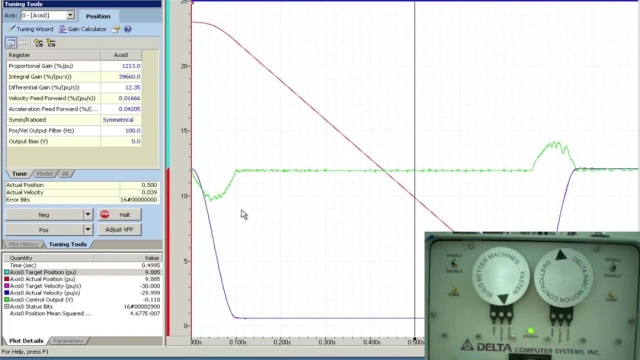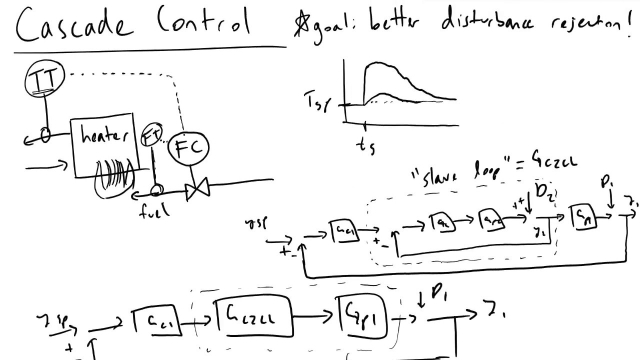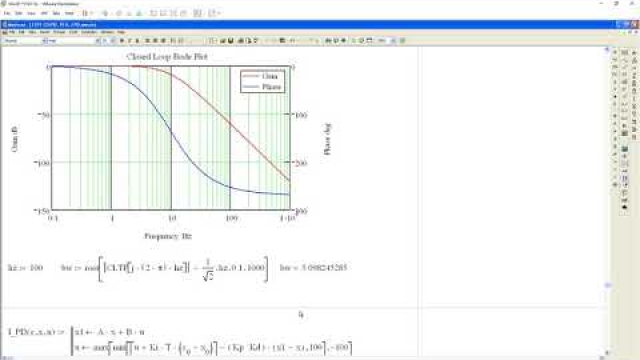A proportional–integral–derivative controller (PID controller or three-term controller) is a control loop mechanism employing feedback that is widely used in industrial control systems and a variety of other applications requiring continuously modulated control. A PID controller continuously calculates an error value, e(t), as the difference between a desired setpoint (SP) and a measured process variable (PV) and applies a correction based on proportional, integral, and derivative terms (denoted P, I, and D respectively), hence the name.
Topic
Proportional-Integral-Derivative (PID) Controller
This topic includes the following resources and journeys:
Type
Experience
Scope
Understanding PID Control, Part 1: What is PID Control?
Chances are you’ve interacted with something that uses a form of this control law, even if you weren’t aware of it. That’s why it is worth learning a bit more about what this control law is...
See MoreUnderstanding PID Control, Part 5: Three Ways to Build a Model
Tuning a PID controller requires that you have a representation of the system you’re trying to control. This could be the physical hardware or a mathematical representation of that hardware...
See MoreUnderstanding PID Control, Part 7: Important PID Concepts
Now that you ’ve gotten an overview of PID tuning techniques, this video moves on to discussing two important concepts in PID control: cascaded loops and discrete systems. Both concepts are...
See MoreUnderstanding PID Control, Part 4: A PID Tuning Guide
It can be difficult to navigate all the resources that promise to explain the secrets of PID tuning. Some proclaim that PID tuning is an art that requires finesse and experience, while...
See MoreAdvances in feedforward control for measurable disturbances
The efficient compensation of load disturbances is one of the most important tasks in any control system. Most industrial processes are affected by disturbances and only feedback is commonly...
See MoreUnderstanding PID Control, Part 6: Manual and Automatic Tuning Methods
The previous video showed three different approaches to developing a mathematical model of your physical system. Now that we have this model, we can use it to tune a PID controller that will...
See MoreAdvances in Feedforward Control for Measurable Disturbances (slides)
These slides present several contributions to improve the feedforward control approaches when inversion problem arise: the ideal compensator may not be realizable due to negative delay...
See MoreAdvances in feedforward control for measurable disturbances (in Spanish)
The efficient compensation of load disturbances is one of the most important tasks in any control system. Most industrial processes are affected by disturbances and only feedback is commonly...
See MoreRegulatory PID (Polish)
W tym odcinku, opisze wam podstawy działania regulatorów PID.
See MorePeter Ponders PID - Introduction
The purpose of this video is to inform the viewer about what to expect. My videos go much deeper than the typical videos. They are geared for graduate st...
See MoreFeedforward tuning rules for measurable disturbances with PID control: a tut...
Feedforward control can be considered as the most well-known control approach to deal with measurable disturbances. It started to be used almost 100 years ago, and since then it is being...
See MorePeter Ponders PID - Integrated Time Absolute Error - 4 Pole example
This video shows how to calculate the coefficients for a 4 pole ITAE and how to use the 4 pole ITAE to calculate closed loop controller gains.
See MoreDirect Design Example for PID Controller
I go through an example problem of how we can use Direct Design (also called Direct Synthesis) to determine the tuning parameters for a PID controller, given...
See MorePeter Ponders PID-Fuzzy Logic vs PID
There are many academic and engineering papers showing how good fuzzy logic control is relative to PID control. Every FL vs PID paper I have seen compares...
See MoreSimple Examples of PID Control
In this video I continue the topic of PID control. We walk through a simple control system and visualize how each of the three paths, P, I, and D, all address specific problems that arise...
See MorePeter Ponders PID - T0P1 Part 4, Misc Topics
This video covers another way to compute symbolic gains, the difference between having the P gain act on the error or just the feedback, extending bandwidt...
See MoreDirect Synthesis Method Numerator Dynamics Problem
I walk through how to design a PID feedback controller when given a second order process with numerator dynamics, using the Direct Synthesis Method.
See MorePeter Ponders PID, Natural Frequency vs Frequency of Acceleration
This video is intended for servo hydraulic system designers and those that program hydraulic servo systems but it does show how several of the techniques sho...
See MorePID Control - A brief introduction
In this video, I introduce the topic of PID control. This is a short introduction design to prepare you for the next few lectures where I will go through several examples of PID control....
See MoreUnderstanding PID Controller
This blog post begins by walking through the basics and the theoretical part of the PID controllers. The controller is then tested, verified, and analyzed using MATLAB.
See MorePeter Ponders PID - Cascade Control Part1
I cover whether cascade control is necessary. Why there needs to be a feed back for every loop. How to calculate gains. Bode plots and ratio of the inner t...
See MoreUnderstanding PID Control, Part 3: Expanding Beyond a Simple Derivative
This video describes how to make an ideal PID controller more robust when controlling real systems that don’t behave like ideal linear models. Noise is generated by sensors and is present in...
See MoreAuto Tuning a Small DC Motor in Torque Mode
I was really testing the picture in picture feature of the Screen Flow software I use to make these videos. I knew the auto tuning would work. I kept the v...
See MoreCascade Control Intro
How can we improve the disturbance rejection of our controllers using additional, relevant measurements? Tune in to find out!
See MorePeter Ponders PID - Closed Loop Zeros
This video covers closed loop zeros, what causes zeros and the benefits and drawbacks of closed loop zeros.
See More
